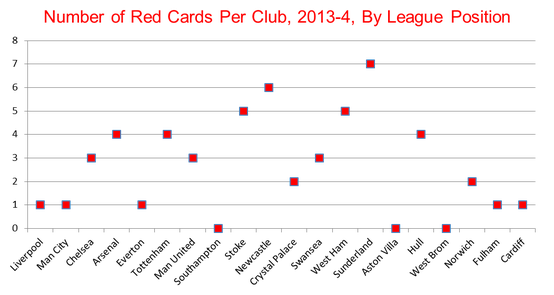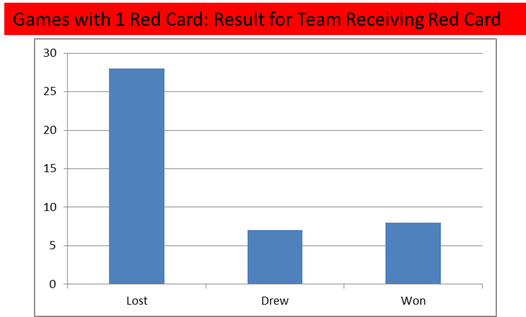The graph below shows no clear relationship between league position and red card count, e.g. top 5 got 10 whereas bottom 5 got only 8 cards. Brown's three red cards helps Sunderland to the top of the list. Newcastle with one fewer cards has the highest number of different players with red cards (6).
To keep things simple we will focus on games with single red cards. As a first aproximation to the cost of the single cards, we will look at the goals and win-lose-draw outcome of these games. It is a first approximation and, ideally, the analysis should be conducted only for that part of the game after the red card was issued - this will be the focus of our second post. Accepting this limitation, the bar chart below reveals that the team that gets the red card tends to lose that game. Two-thirds of these games end up with the team that got the red card losing. The other third is divided between winning and getting a draw.
(The data is courtsey of Opta.)



 RSS Feed
RSS Feed